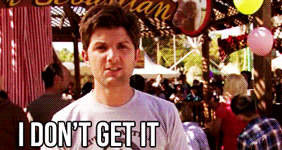In a lot of ways, my second year at UBC was better than my first one. This was mainly because I was able to force myself to focus more on my academics this past year, which resulted to more effective time management on my side, and of course, less stressful days! It also definitely helped that I enjoyed almost every single course that I took this year.
In this post, I will review each class that I took in the first term of my second year. Let’s get to it!
ECON 221 – Introduction to Strategic Thinking (Instructor: Michael Vaney)
This course is all about Game Theory, the study of developing and using strategies in making decisions. If you’re planning to take this class, be prepared to study a lot of different economic models (Cournot, Bertland, etc.). Getting an A in this class is definitely possible if you: 1) make sure you have complete lecture notes (Vaney doesn’t post his lecture notes online, so your notes will be your main study tool), 2) do your assignments at least 3 days before the due date (they’re quite long; last thing you want to do is copy off someone else’s work and miss your chance at answering problems that may appear again in your midterm or final), and 3) go to your tutorial/discussion class! Before I took this course, the only economic models I had been familiar with were the ones taught in ECON 101 and 102. So lectures during the first few weeks were a bit hard to follow, but thankfully we had a very helpful TA for our discussion group; she was patient in answering all of our questions and was very generous of her time outside her office hours! I wasn’t very happy with my midterm mark. Thankfully, the midterm and the final had almost exactly the same format! So after thoroughly reviewing the midterm questions and going through the practice final exams, I was able to pull off an A!
Best thing I learned from taking this course: Take advantage of econ tutorials/discussions! Even if attendance is not mandatory, attending discussion groups will surely help you understand the class better.
ECON 325 – Introduction to Empirical Economics (Instructor: Hiro Kasahara)
I guess I’ll start by saying that I didn’t enjoy this course as much as I wanted to. ECON 325 is a required course for the Economics Major program, so I thought it would be a good decision if I took it early and got it out of the way as soon as possible (most econ majors take it in their third year). Boy, was I wrong!! In simple terms, this course shows students how basic statistical techniques could be used in economic research. Although I liked most of the things that we learned, there was one thing that I struggled with: proving formulae manually. Don’t get me wrong – I enjoyed statistical (null and alternative) hypothesis testing, getting confidence levels, figuring out probability distributions, and many other statistical techniques taught in the course. But there was something about manually proving statistical formulae that I just couldn’t grasp (I get it now though, thanks to ECON 226 and Prof. Adshade! More on that in my next post). I do not mean to disrespect Mr. Kasahara–who is one of the most respected professors by post-grads and his colleagues–but I just don’t think that his teaching style matched the way I learn. I wish class time were spent more on solving practice problems and less on reading off PowerPoint slides. My classmates seemed to have no problem with that though, since the class average was 77, which is quite high for an econ course. Midterm was okay, assignments were easy but tedious, and final exam was difficult.
*Pro-tip: If you’re taking ECON 325 or 326, download Stata on your laptop as early as possible so you can experiment with it in your spare time. Having it on your laptop will also save you lots of time and effort in assignments!
Best thing I learned from taking this course: If you want to do well in a course, ask your questions RIGHT AWAY–ideally in class–when you get confused.
STAT 200 – Elementary Statistics for Applications (Instructor: Eugenia Yu)
If you have been paying attention to what I’ve been writing, you *might* wonder: is taking ECON 325 and STAT 200 at the same time recommended since they’re both statistics courses? My answer: NO. In fact, if you’re planning to be an econ major, you can just use STAT 200 to fulfill the ECON 325 course requirement. Why did I take both? That’s a question I ask myself until today hehehe….. Thankfully, STAT 200 was a great course. It wasn’t an easy class, but Eugenia found a way to clearly explain complicated concepts to students who were not expected to have any background in statistics. She managed class time wisely: spent no to very short time going over self-explanatory concepts, and spent ample amount of time explaining more difficult ones. She promptly answered my questions after class, during office hours, and even through e-mail. The midterms and the final were quite difficult and long; thankfully Eugenia allowed us to have a one-page back-to-back exam cheat sheet! You’ll do well in this class if you regularly do the suggested textbook exercises and the weekly WeBWork assignments.
Best thing I learned from taking this course: Do WeBWork assignments with classmates. Aside from being able to ask one another about things you’re struggling to understand, it’s also an easy way of gaining more friends!
PHIL 150 – Minds and Machines (Instructor: Gerardo Viera)
Hands down the best class I took that term! First of all, I love philosophy. I love the fact that it teaches you how to think and that it forces you to think about important issues that you’ve never thought about before. I love that there are there are good and bad answers, but never right or wrong ones. PHIL 150 poses questions like: Do machines have a mind? Are their minds different from human minds? What allows us to claim that something has or is a mind? Gerardo’s lectures might have gotten a bit repetitive and monotonous in terms of format, but the content never failed to interest me. Because most of the stuff we talked about piqued my interest, I was able to go over the readings effortlessly. If you don’t read the assigned readings before class, there’s a big chance that the topics you’ll talk about in class will bore you to sleep (some of my classmates would fall asleep AT LEAST once a week in front of our instructor. Not even kidding). There was no midterm exam for this course; we had three papers and a final exam. Gerardo is a very generous marker. He cares more about the logic of arguments than about flowery language and wide vocabulary. As long as you show that you understand the readings and make a logically sound and valid argument on your paper, you will get a high mark.
Best thing I learned from taking this course: Start writing your papers early, but never be satisfied with your first draft. Sometimes you want to start writing a paper but are hesitant because you don’t exactly have your argument fully formed yet. That’s okay–just start writing and you will gradually figure out what it is exactly that you want to say in your paper.
Those are all the courses that I took in term one. In my next blog post, I will review all the courses that I took in term two. If you want to check out the other courses that I’ve reviewed so far, click the Course Reviews menu in the sidebar of my blog. If you have any questions about a professor, a class, or anything UBC-related, don’t hesitate to comment below or tweet me @seanceli!




